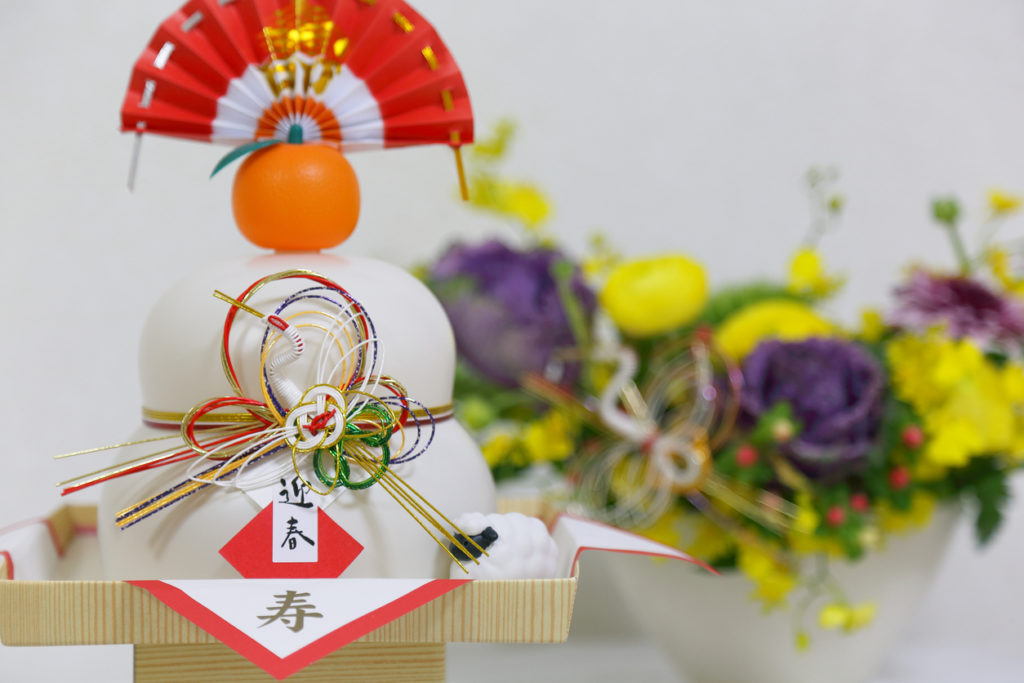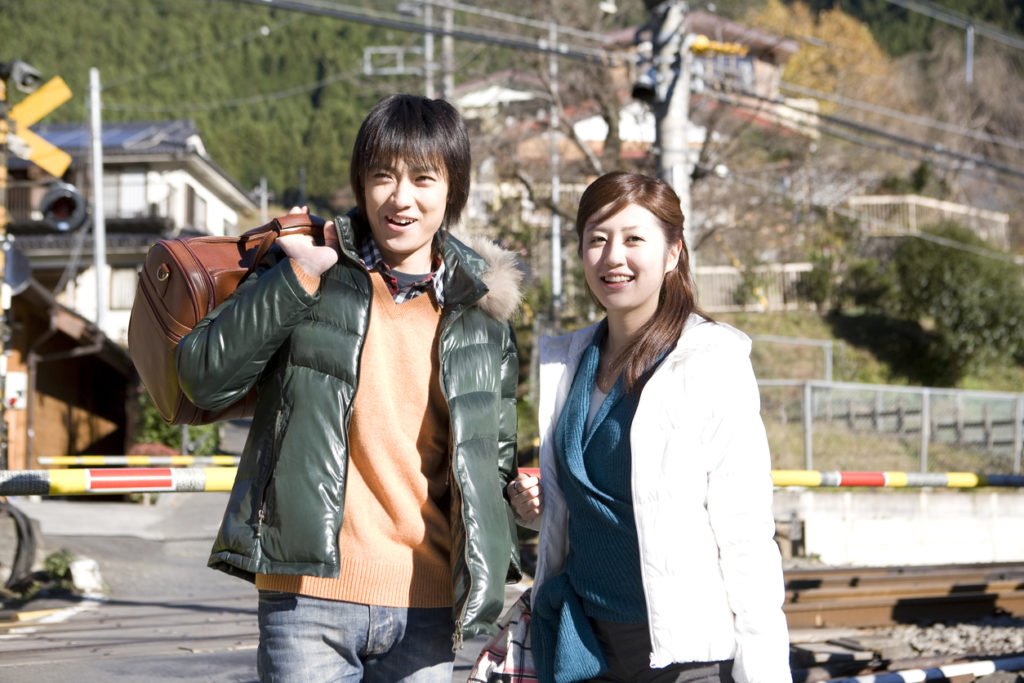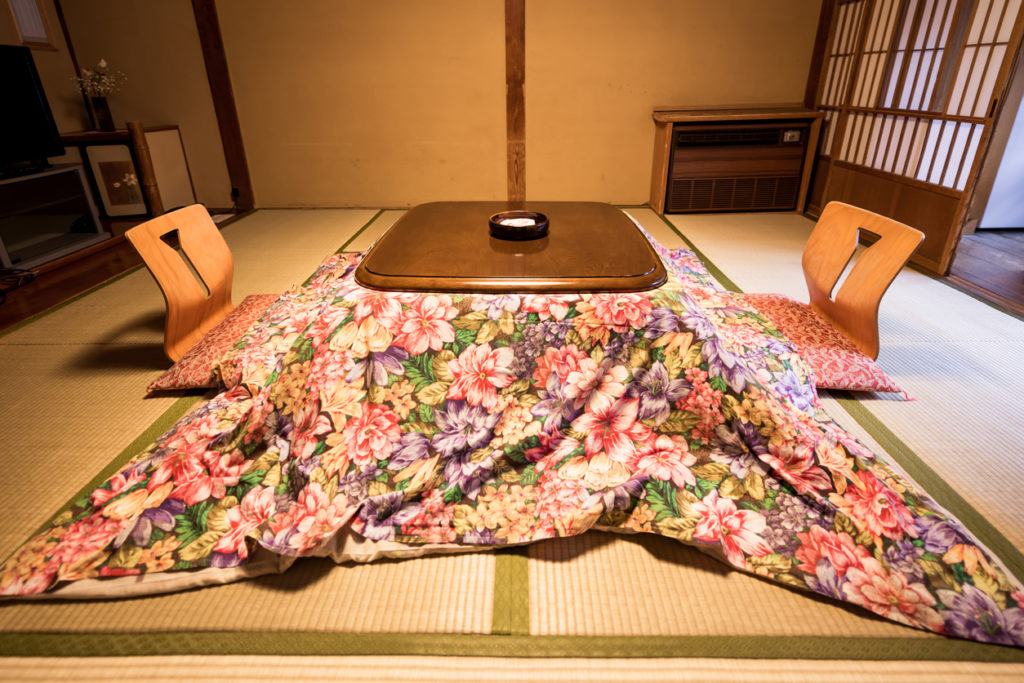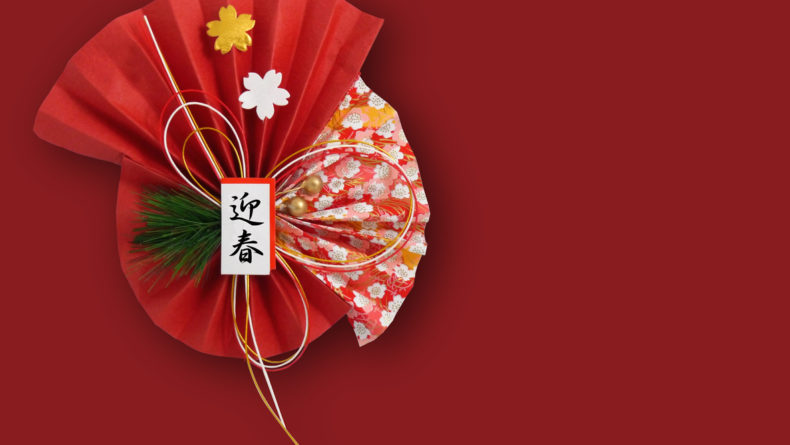The Holiday Dilemma: With Whom and Where To Spend them With Family
A (Sometimes Tough) Decision Japanese Married Couples Have to Make
Will you be welcoming the new year with your own parents or with the in-laws? 'Tis the question pretty much all married Japanese couples have to face (and hopefully resolve) at one point.
The New Year in Japan is the time of the year when families get together and relax at home, watching TV and eating mikan (Mandarin oranges) while warming up under a kotatsu — a clever invention that consists of a table with a heater installed underneath and covered by a futon blanket to keep the heat in. That’s how I used to spend my New Year’s when I was a child, in my grandparents’ house in Okayama Prefecture, surrounded by relatives on my father’s side. Yes, the celebration was always with my father’s family — not my mother’s. I had never questioned why that is — well, until now.

Recently, my mother came home looking a bit perplexed. Apparently, she and a couple of her friends were talking about their New Year plans over lunch. Upon hearing that my mother spends every New Year’s Eve and day with her husband’s side of the family, both of them immediately asked her why that is and went on to say that that is neither a norm nor a common practice. Their opinions and thoughts were rather eye-opening and shocking for my mother, as her “custom” of over 30 years — ever since she got married — was suddenly questioned.
Before proceeding any further, I believe it’s necessary to explain how and why my family’s new year “practice” came into place. As I wrote in my previous article, when a Japanese couple exchanges marriage vows, one person — usually the female — takes on the spouse’s last name. This custom is directly linked to the long-held notion of women marrying “into” and becoming a member of their husband’s family. Therefore, married women were no longer seen as part of their own family. My mother’s mother — or, my grandmother on my mother’s side — being the traditional lady that she is, has firmly held this belief and thus expected her daughter to spend her New Year’s with the family she married into.

Listening to my mother made me wonder what everyone else is doing during their New Year’s — and how they decide or what determines their actual holiday plans. As a start, I went on Google and typed in keywords, such as nenmatsu-nenshi, which literally translates to “year-end, year beginning,” and fuufu, or “husband and wife.” This returned a long list of search results, with people asking others on bulletin boards about the end-of-year holiday season. Questions such as “How do you and your husband usually spend your New Year’s?” and “Will you be at your own parents’ house or your in-laws’ house?” were the most prominent. I also saw some people — especially newlyweds — wondering whether it’d be rude not to welcome the year with their in-laws. The sheer volume of questions and calls for advice showed that this topic is of great interest and a source of anxiety for many married Japanese couples.
[R]oughly half of Japanese married couples are choosing to spend the New Year’s at their own house by themselves.
I then read several online articles that discuss and analyze the results of surveys conducted on married individuals. Two of them were carried out by major bridal service providers, Gurunavi Wedding and Mynavi Wedding, while another was undertaken by Kufura, a website for working women run by Shogakukan, one of the largest publishers in Japan. Looking through the results, I came to notice one striking trend: roughly half of Japanese married couples are choosing to spend New Year’s at their own house by themselves (and with kids, if they have any). Of those returning to their hometowns, Mynavi’s survey showed that about half of married couples visit both families during the New Year holiday, not one or the other. Moreover, Gurunavi’s survey found that about six percent of respondents go back to their own families separately – not together.
It thus appears that married couples nowadays have far more freedom when it comes to choosing how they’re going to spend the year-end holiday season. However, considering the fact that my mother’s friends — who pointed out that it’s not a “normal” practice to spend every New Year’s with in-laws — are both past 60, age seems to be not the only factor that determines where and how married people welcome the new year. In fact, it appears that other factors such as distance to each other’s hometown play a more decisive role.
[M]arried couples nowadays have far more freedom when it comes to choosing how they are going to spend the end-of-year holiday season.
My mother’s friends, for example, live close to their own parents as well as to their husbands’ families. They welcome the new year at their own house and then spend the next couple of days going around visiting their families and relatives. Wishing loved ones a happy and prosperous new year, therefore, can be accomplished in just a few hours; there’s no need to tackle the dilemma of where they should be at and with whose family right when the new year begins.
I got a similar response from a friend of mine with two small kids, who said both her parents and her spouse’s parents live nearby. This year, however, she’s thinking of doing something different — she’s planning on going on vacation, with both sides of the families. That, I feel, is one of the perfect solutions to the annual holiday dilemma, as no one has to feel sad, disappointed or frustrated. Oh, and there’s also an added bonus of not having to slave over the stove to prepare a large volume of gorgeous osechi ryouri (food served during the New Year’s holidays) for all family members to consume during the first three days of the year.

What about myself? Well, one of the reasons I chose to write on this topic is because I have a plan to move in with my fiancé soon. Since the timing is such that the end-of-year holiday is just around the corner, one day our conversation digressed into a discussion of how we’d like to spend the New Year’s once we tie the knot. It didn’t take much time before we reached an agreement: we’ll be at our own little house with a warm cup of tea and some mikan, watching NHK’s Kouhaku Uta Gassen (Year-end Song Festival) on TV with our two feline companions. Once New Year’s Day has dawned, we’ll pop over to our parents’ houses and wish them a new year filled with happiness, prosperity and love.
I wish everyone a Happy New Year!















Leave a Reply